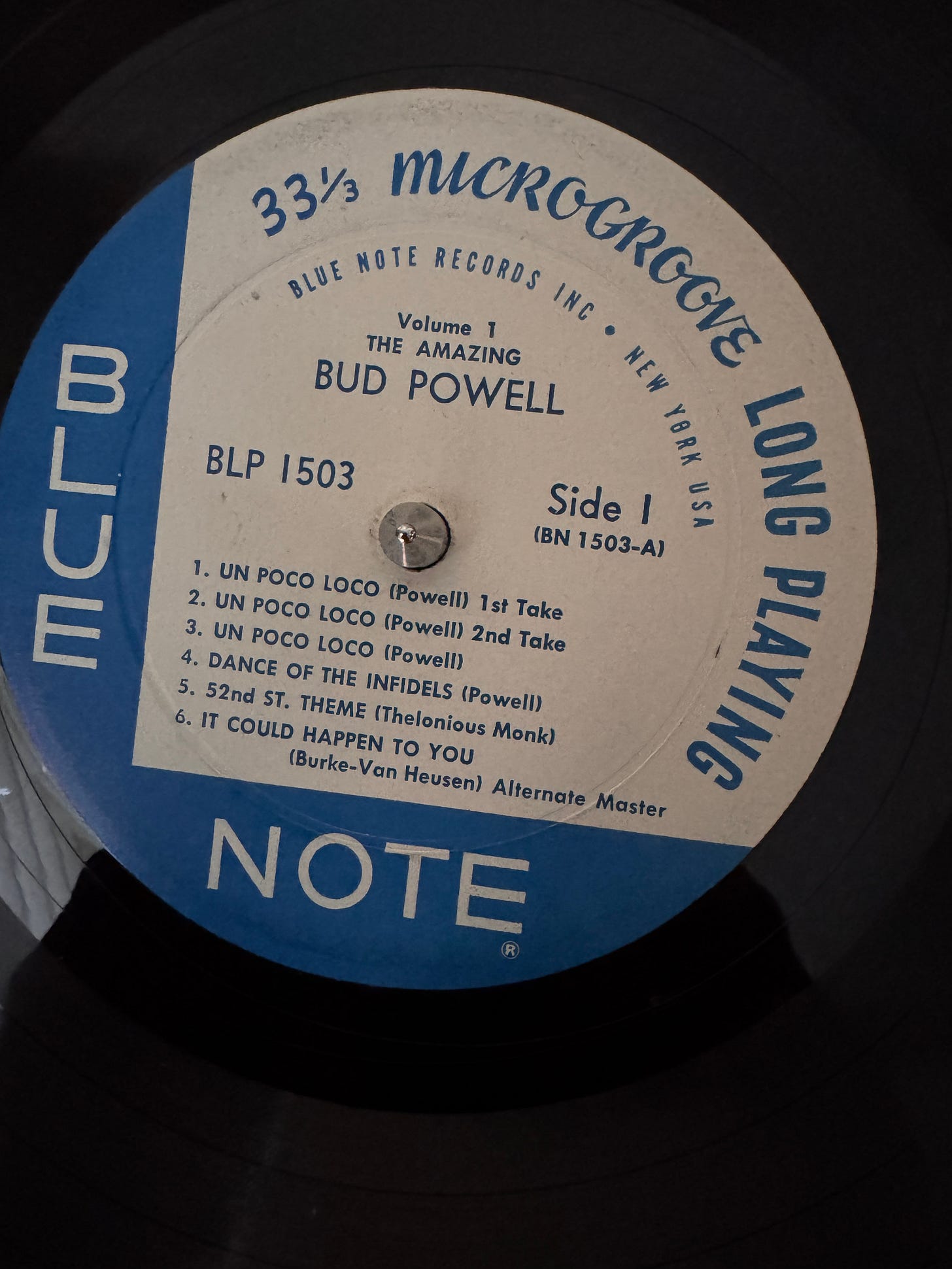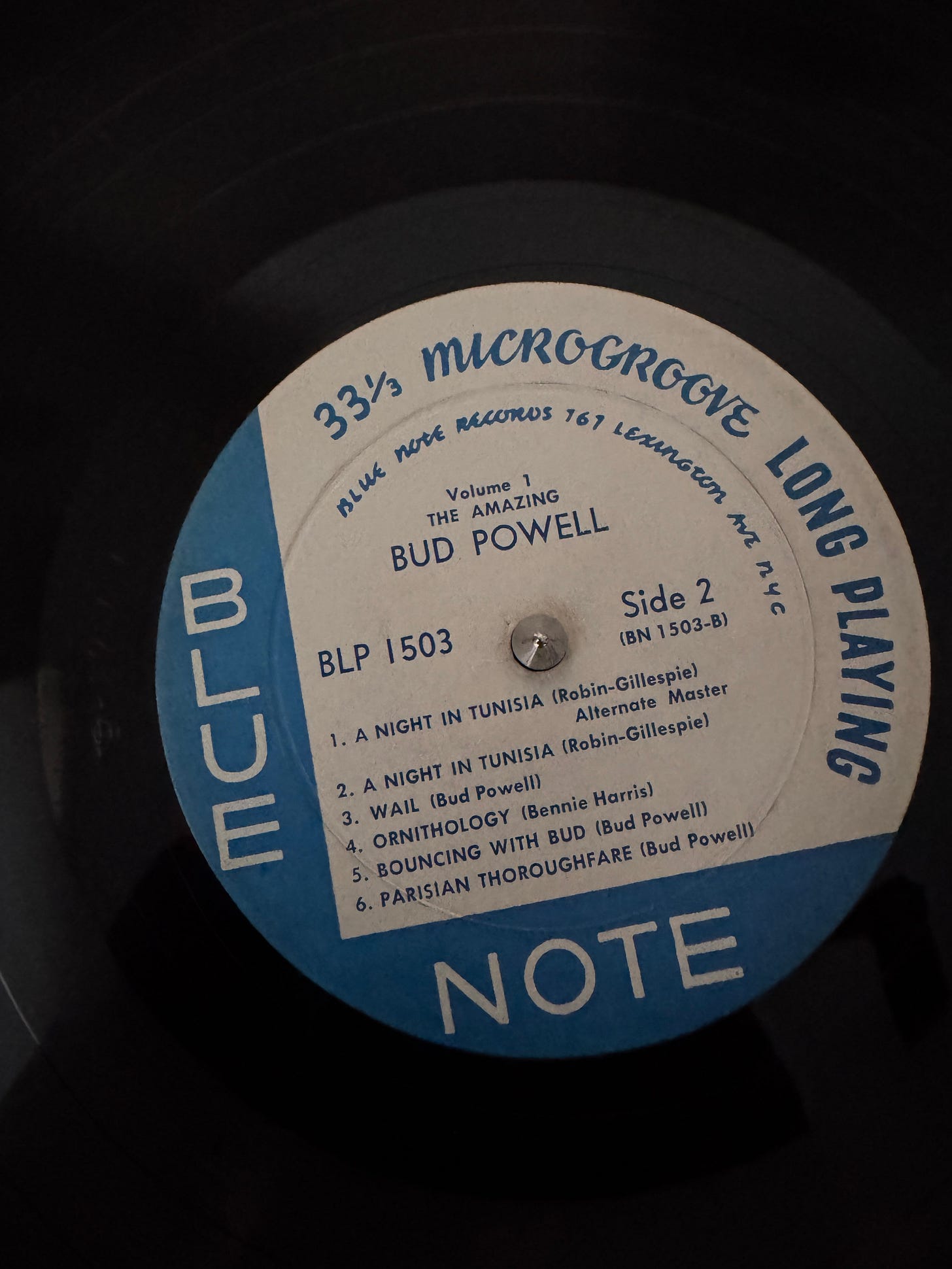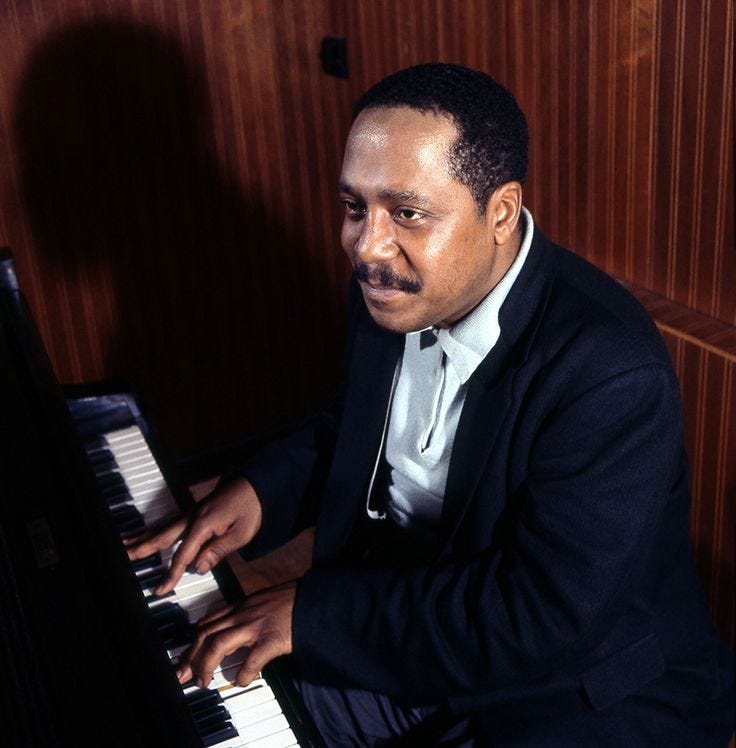Bud Powell Played Like His Life Depended on It - Maybe It Did
Relistening to "Un Poco Loco" and The Amazing Bud Powell Vol. 1
While a few of Bud Powell’s peers have stated that his best music may have gone unrecorded, I’m still shocked at the number of times Bud Powell’s music is omitted from top ten lists for jazz. His language is such a key ingredient of the music of the 20th century and beyond. Whereas some would argue that his piano style is easier to analyze and adapt versus his musical big brother and piano peer Thelonious Monk, Bud is taken for granted far too often.
If you’re new to Bud Powell, or a seasoned listener, push play on The Amazing Bud Powell Vol 1. (Blue Note.) This collection blazes with the first versions of some of Bud’s best originals, “Un Poco Loco,” “Dance of The Infidels,” “Bouncing with Bud,” and “Wail.”
Much has been said about “Un Poco Loco,” but, for me, it’s one of those compositions that defies genre. Even beyond the Max Roach signature drum pattern, Bud’s decision to base his primary solo on a vamp as opposed to the complete structure of the composition was cutting edge. Eight years before Miles Davis’ Kind of Blue, Bud is showing us how to use the language that he developed to navigate tricky chord changes over a simpler harmonic structure. There are a few short pauses in his right hand, but the ideas just keep flowing and flowing. The synergy between Bud, bassist Curley Russell and Max Roach is deep and hypnotic – just like all the best grooves.


Many years ago, Mental Health America (then known as National Association for Mental Health) designated May as Mental Health Awareness Month. As a few of Bud’s original songs were titled to celebrate the people and reflect on the occurrences in his life, I wonder if “Un Poco Loco” pointed to the complexity of the composition or if it was his comment on himself. The police brutality that Bud suffered outside of a gig in Philadelphia in 1945, just two years before his first recording as a leader, may have exacerbated or initiated his mental illness.
Treatment methods were still in their infancy in 1951 when “Un Poco Loco” and half of the tunes on The Amazing Bud Powell Vol. 1 were recorded. When Bud was sent away to get help, like many, he was given electroshock therapy. Friends and fans would notice side effects including the gradual downgrading of his dexterity; he suffered from amnesia; and he contracted tuberculosis. Dr. Frederic Harris and producer Ira Gitler maintain that Bud was misdiagnosed altogether and may have suffered from neurological issues.
Throughout his struggles, music was the only constant balm that Bud Powell had to get him through, and no musician in 2025 should suffer due to lack of adequate care. Mental health care should always be a basic human right. The fact that so many are still touched by Bud’s sacrifices through music despite his circumstances easily justifies his moniker, “genius of modern music.” Continuing the fight for access to proper mental health and wellness care for all people is a prudent method to advance Bud’s legacy and countless others.




